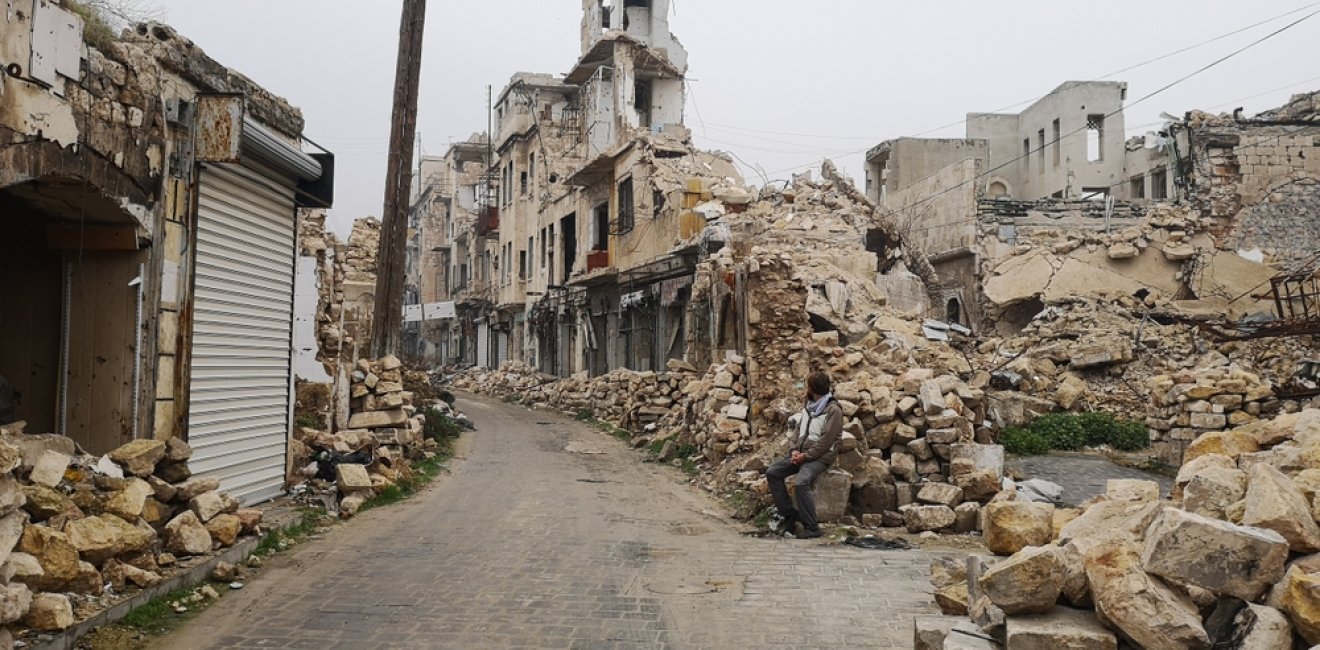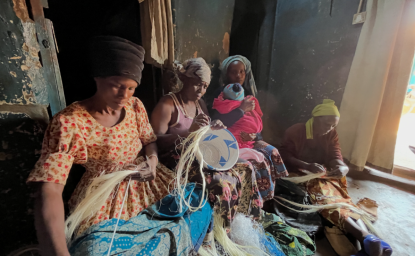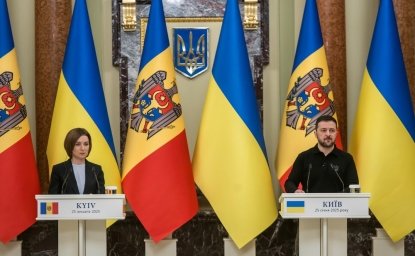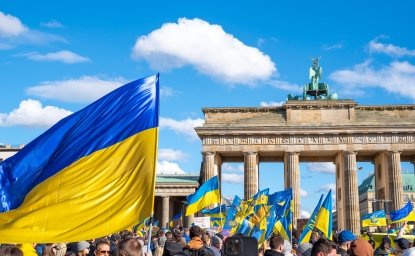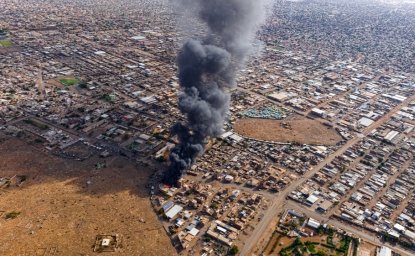With the sudden dissolution of the Bashar al-Assad regime on the night of December 8, 2024, the millions of forcibly displaced Syrians who fled the country since the beginning of the civil war in 2011 can suddenly consider the possibility of returning to their home country.
Türkiye, which hosts more than 3 million Syrians, has opened the border between the two countries to create a corridor for their return.
Thousands have already returned, and thousands more are lined up at the border. Many of those returning immediately are those who were living in refugee camps or who still have family and homes in the country.
The Syrians I know who sought refuge and reside in Türkiye are unified in their jubilance and celebration of the end of the Assad family’s brutal rule. Many are hopeful about the future and committed to participating and working across differences to build a secure, inclusive, peaceful, and thriving Syria.
Yet, for a vast number of Syrians in Türkiye and elsewhere, the question of return is complicated.
It’s hard to grasp the degree to which Syrians have been living in limbo since 2011, and some long before that.
Before December 2024, there was no end in sight for the civil war or Assad’s rule. Those who fled had no idea if they would ever be able to return safely, even for a visit.
As one Syrian living in Türkiye put it to me, “It is 13 years [since they left] where they have already completely lost grasp of what their own country became and what the future is hiding. Returning now means that they will start their life, all over again.”
Though most Syrians who left are living precarious lives abroad because they were not given long-term status in the countries that hosted them, they have been doing everything they could to create meaningful and as stable lives for themselves as they could. No one expected the sudden change, and no one was prepared for it.
While people are overjoyed at the end of the brutal repression, they also need time to figure out their options and determine what makes most sense for them.
What the Syrians are Saying about their Return
Below are some of what I’m hearing from Syrians on the ground in Türkiye.
The future of Syria is uncertain. Many feel that it is too early for them to determine whether it will be safe for them to return or when there will be a stable infrastructure to support them.
Many worry that if they return, they will find themselves amid war and conflict again.
Because the next government is unknown, potential returnees do not know where they might fall on the fault lines of future power structures.
Some people are afraid that a new government could impose an Islamist agenda, which could infringe on what they consider to be their basic human rights. I am hearing this especially from women.
What would they return to? Bombed buildings have left physical devastation that has destroyed homes, schools, parks, businesses, government institutions, and so on. Many people therefore do not have a physical place to go back to.
Many lost all their belongings when they left and had to start all over in Türkiye. Most cannot transport their current belongings to Syria. Returning would mean losing everything they have invested in materially, only to have to start over once again.
Some Syrians don’t care about their possession because they just want to return to their homes. What would happen when they try to reestablish themselves? Many do not have significant financial resources, so they would struggle to create homes for themselves. Syria is also lacking much needed infrastructure. It is likely that not only would people not have enough money, but there may not be enough goods available to meet the demands of all the returning people, which could produce new challenges or even crises.
The Syrian economy has largely collapsed, leaving 90% of the Syrians who remained through the war living in poverty. The economic sanctions against Syria by the United States and European Union persist, and international aid to support rebuilding the country has yet to be determined. Until the economic rebuilding begins, people returning to Syria are not assured of jobs or ways of supporting themselves. They are also not assured of schools or professional training opportunities. Millions of people returning to a country without the economic or physical infrastructure to support them could cause yet another crisis.
I’ve asked Syrians what they have heard from the Turkish authorities. They responded that it is too early to tell. As of the time of writing this article, no Turkish policies toward Syrians have changed. The Turkish government is currently stating that return is “voluntary.” However, since the Turkish government was already strategically forcing Syrians out before the fall of Assad’s regime, people worry about what might transpire in the future.
Some (including those in countries other than Türkiye, such as Germany) have expressed that they are fearful that eventually they might be forced to return, in which case they would be forcibly displaced once again.
For some of the displaced Syrians, their children have lived most of their lives or were born in Türkiye. Many children do not read and write or even speak Arabic. They are currently in school, they have friends, routines, and stable home environments in Türkiye. Parents worry about the repercussion of uprooting them at this point in their lives.
Similarly, many Syrians adults living abroad have established successful businesses and jobs; some are studying at universities and others are otherwise engaged in fruitful lives. Even if they want to return, they don’t want to disrupt their studies or lose their livelihoods.
Still others have established good lives for themselves in the diaspora and don’t want to leave. They enjoy their homes, neighborhoods, jobs, friends, communities, and leisure activities. If Türkiye decided it’s time for all Syrians to go home, they would lose these lives that they have worked so hard to create.
Though most of my connections are with forcibly displaced Syrians who have been living in Türkiye, those living in other countries have similar concerns. Of particular note are those who applied for asylum. While awaiting the results of their applications, they have been establishing roots in the country hoping that it would be their new home. If their cases are rejected because conditions in Syria become safer, everything they have been working for could be disrupted and ultimately lost.
Policy Implications
The millions of Syrians who were displaced by Assad’s brutal regime are people who have suffered a great deal of trauma and displacement in their lives. They should be given the opportunity to make the decisions that are best for themselves and their families.
A one-size fits all approach to returning displaced Syrians would not account for the very real experiences and needs of people who have been establishing lives and planning for their futures within the precarity of not knowing if they could ever return to Syria.
Requiring or expecting Syrians to return before the new governing apparatus is established could put people who have already been displaced for years into potentially dangerous situations.
The infrastructure—physical, economic, social, and cultural—needs to be rebuilt for people to return to viable and sustainable lives. Syrians abroad are enthusiastic about being part of the rebuilding efforts, but the infrastructure and resources need to be in place prior to their return so that they can care for their families and contribute rather than drain an already fragile situation.
Rebuilding efforts should include the critical resources for fostering the arts and cultural sector and attending to mental health issues.
The future of Syria will depend on people being able to create connections with one another across differences, establish trusting communities, express loss and grief, share versions of history from different perspectives, educate youth about what it means to be Syrian, process trauma, establish a sense of belonging, and create opportunities for people to have fun and experience joy. The international community should recognize that peaceful coexistence requires arts and culture. Arts and culture should be given as much attention as shelter, health, food, governance, and other basics at the center of rebuilding efforts.
Author
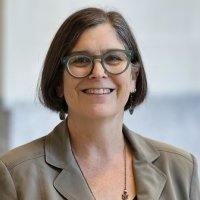
Professor, George Mason University

Refugee and Forced Displacement Initiative
The Refugee and Forced Displacement Initiative (RAFDI) provides evidence-based analyses that translate research findings into practice and policy impact. Established in 2022 as a response to an ever-increasing number of people forcibly displaced from their homes by protracted conflicts and persecution, RAFDI aims to expand the space for new perspectives, constructive dialogue and sustainable solutions to inform policies that will improve the future for the displaced people. Read more



